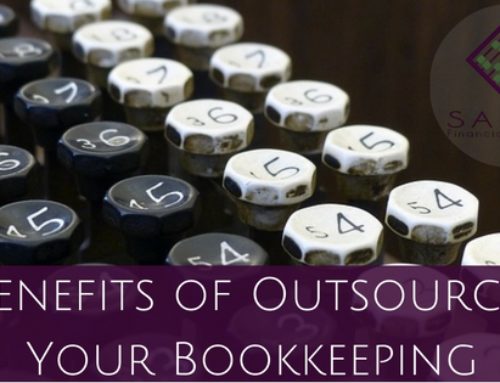A transitioning entrepreneur is one who is employed by someone else, but has a side hustle or independent freelance work “in progress” that generates revenue in addition to employment income. The transitioning entrepreneur actively seeks to grow his/her business with the goal of eventually leaving the job and working full-time for themselves.
If your goal is to leave that dreaded job and finally begin working for yourself in the field that you are passionate about, here are three things you need to think about to get ready to make this happen.
Establish the Entrepreneur Mindset
Repeat after me: “My 9 to 5 is my side hustle. It funds and invests in my growing business, <insert your name>, Inc.”
One of the first things that we need to remember from the financial aspect of our business is the importance of INVESTING in our business. If you have determined that you want to move from employee to entrepreneur, you have to begin thinking of your finances in a different way. Not only do you have to spend money on your everyday living expenses, but now you have a business that needs to be nurtured and fed on a regular basis until it can sustain itself. You are your own angel investor, venture capitalist, Daymond John, Mark Cuban…you get the point.
When you remember that you are the main investor in You, Inc., you will approach decision-making differently. You will begin to think long-term instead of short-term. When you have a deadline set for quitting your job to work full-time for yourself, it affects everything else you do. If postponing one vacation will get you closer to running your own business, that decision becomes easier to make.
Have a Detailed Plan
Like all new small businesses, you’ll need a plan. Not a general idea, but a detailed plan. The financial section of your business plan will need to cover expenses that are necessary to starting and running the business until it begins generating revenue. You need to determine where the funds are coming from and how often, and a working budget for those funds. Will you set up a direct deposit from your paycheck to a separate account for business? Or will you make a deposit once monthly for six months? You also need to write out the types of expenses you will incur, such as startup costs, marketing, equipment costs, training and qualifications.
Save up for living expenses and start-up funds
To begin investing in your business, you have to make it a priority. It has to become a deliberate line item in your budget.
It is recommended that you have at least 3-6 months of savings set aside for emergencies. But when you are transitioning from a full-time job, additional factors come into play: the type of business you’re starting and the risk level of your new undertaking, how much time you give it to start generating revenue, etc. You may find that you need a healthier emergency fund to account for loss of steady wages.
Some additional factors to consider:
- Is it a business in the same line of work as your 9-5? If so, you may have an established skill-set, some possible referrals, and experience to draw from to gain clients. That may lower your risk factor.
- Are you entering a partnership with another individual? If you have one or more equal partners, you have less risk personally to absorb. Be careful though about entering a partnership and make sure that clear guidelines and contracts are in place.
Bonus tip: Start creating digital “wallets” for your business.
Even before debating entity structures, it’s important to set aside a separate account for income and expenses that come from the new business. You don’t have to wait until you start making money or set up a fancy corporation to set up separate accounts.
This is important for several reasons:
- The money you are spending on the business needs to be accurately accounted for, so that you know exactly what you spent and how you spent it (How much do I need to earn to at least break even? Am I spending too much on marketing costs? Is that monthly subscription worth it?)
- When tax time comes, you have a good record of what was spent for your accountant. Startup costs are deductible, and you will want to take every legal deduction you can, especially the first year.
- It keeps you in compliance with the IRS and their rules. They’ve been known to scrutinize businesses a little harder than normal when the tax return shows questionable activity.
What types of accounts should be set up?
At the very beginning, one checking and one savings account should be sufficient for a service based company with no employees. If you are hiring employees, a separate checking account for payroll transactions will help separate payroll money from operating funds.
So what do you need to do next?
Figure out how much money you need to live it…bare necessities. Can cable be cut out? Can eating out and shopping be decreased so that you can invest in You, Inc.? Maybe you say, “I don’t need to cut back on anything”, but the more you save, the quicker you will realize your dream of quitting your job and working for yourself.
Invest in yourself to learn new skills or sharpen skills you already have. As an avid reader, I realize the importance of books in a growth plan. There is so much to learn about running your own business, and even if you plan on pursuing your passion full-time, there are administrative things you will have to learn. Here are a few money books that we recommend to help you get started.
Remember, the transition from employee to entrepreneur can be as long or short as you are motivated to make it. With real planning and focus, you can realize that dream sooner rather than later.









